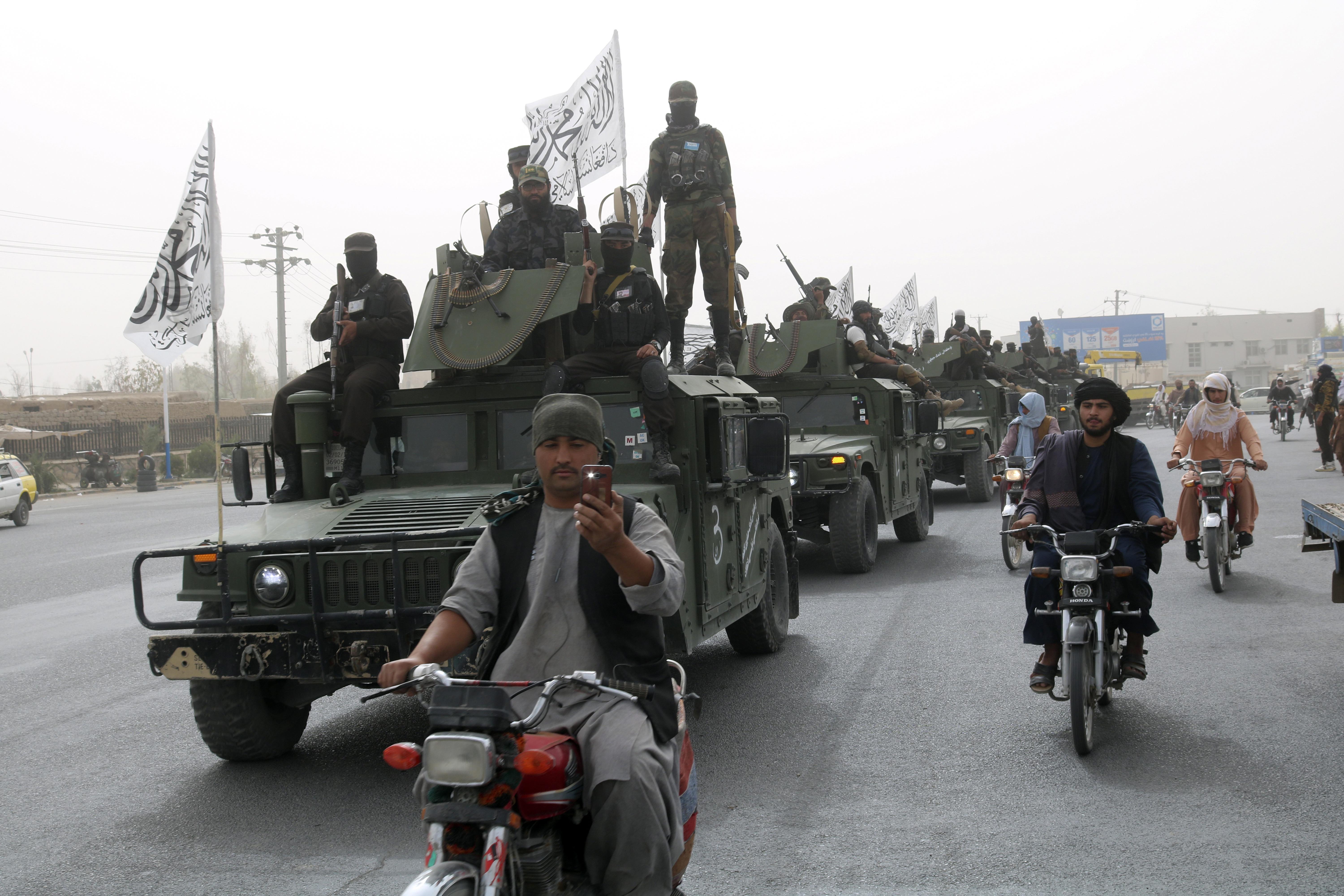 Taliban fighters patrol on the road during a celebration marking the second anniversary of the withdrawal of US-led troops from Afghanistan, in Kandahar, south of Kabul, Afghanistan, Aug 15, 2023. (PHOTO / AP)
Taliban fighters patrol on the road during a celebration marking the second anniversary of the withdrawal of US-led troops from Afghanistan, in Kandahar, south of Kabul, Afghanistan, Aug 15, 2023. (PHOTO / AP)
Afghan history over the past few decades has shown that externally imposed solutions aimed at securing peace and stability in the country only end in failure.
That is why Beijing chose to abstain in a United Nations Security Council vote on Friday.
Thirteen of the 15 members of the UNSC passed Resolution 2721, which calls for the appointment of a special envoy for Afghanistan to increase engagement with the country and its Taliban leadership. China and Russia abstained.
Based on a UN-commissioned independent assessment report on the conditions in Afghanistan, the resolution is considered a step toward the country's reintegration with the international community. But the envoy, who is anticipated to facilitate communication, may become an obstacle to it instead.
While Kabul welcomes "more robust and enhanced engagement" with the UN, special envoys "have complicated situations further via the imposition of external solutions", said a spokesman for the Afghan Foreign Ministry.
The UN report linked recognition of the Taliban authorities to their compliance with international treaty obligations and commitments, particularly with regard to the rights of women and girls.
What the UNSC resolution deems as appropriate and indispensable may end up becoming what in the Taliban's eyes is undue meddling in its domestic affairs. The Taliban authorities have called the idea of a special envoy to promote gender and human rights "unnecessary".
The Taliban has made clear that it will not bow to external pressure.
"The approach of the government of Afghanistan will ultimately be guided by the unaltered religious beliefs, cultural values and national interests of the people of Afghanistan," said the Taliban official.
Thus appointing a special envoy may not be such a forward-looking recommendation for an integrated and coherent international approach to Afghanistan as anticipated.
Geng Shuang, China's deputy permanent representative to the UN, expressed the Chinese government's wish after the vote that the UN secretary-general proceed with prudence.
He urged the UNSC and secretary-general of the UN to communicate fully with and respect the opinions of the country in question, and make a decision after "broad consultations with all stake-holding parties".
Appointing an envoy in disregard of the Taliban authorities' opposition "may result in the envoy being unable to perform his/her duties," Geng warned.
Thus while a special envoy might sound like a good idea, it may not be the right prescription for Afghanistan. Instead, it may only worsen the contradiction and antagonism between the international community and the Taliban.


